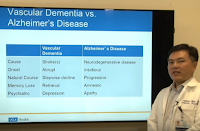
Vascular Dementia for Professional & Family Caregivers
PLAIN-ENGLISH CARE VIDEO: This crystal-clear 20-minute UCLA seminar outlines key facts about Vascular Dementia. Learn what happens, how it compares to Alzheimer’s, who it affects,

PLAIN-ENGLISH CARE VIDEO: This crystal-clear 20-minute UCLA seminar outlines key facts about Vascular Dementia. Learn what happens, how it compares to Alzheimer’s, who it affects,

OFF-LABEL DRUGS, VIDEO & ARTICLE: The American Heart Association reports the blood pressure drug nilvadipine increases blood flow to the brain’s memory and learning center.
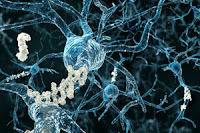
IN-DEPTH: VIDEO + ARTICLE: What do arteries, veins and cerebrovascular health have to do with Alzheimer’s? ( Cerebro-> brain. Vascular-> arteries & veins.)

DRUG NEWS: Genentech will showcase the breadth and promise of their Neuroscience Portfolio at the 2019 American Academy of Neurology Annual Meeting. It includes new

Cardiovascular events like strokes can trigger vascular dementia.American Heart Association cholesterol guidelines can significantly reduce cardiovascular events. Is it time to take a fresh look at your cholesterol?
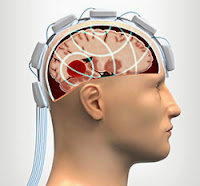
VIDEO & ARTICLE Stroke causes vascular dementia. Strokefinder enables earlier diagnosis than current methods, improving the possibility to counteract brain damage. See how.
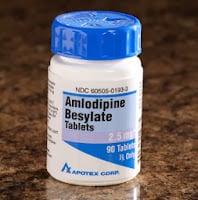
Amlodipine, an inexpensive drug approved for high blood pressure, could become the first ever treatment for vascular dementia. Vascular dementia is one of the most

VIDEO & ARTICLE See why a Taiwanese study closely connects insomnia and vascular problems. (Vascular problems like stroke and heart attack are primary causes of

TWENTY MUSIC VIDEOS: Music says what words never can. Take in these engaging, moving songs about living well with Alzheimer’s.

TEEPA CARE-TIP VIDEO:
Dementia dangerously alters a person’s sense of smell. Teepa Snow brings to light what people with dementia smell – and what they don’t. Learn to prevent hazards and frustrations.
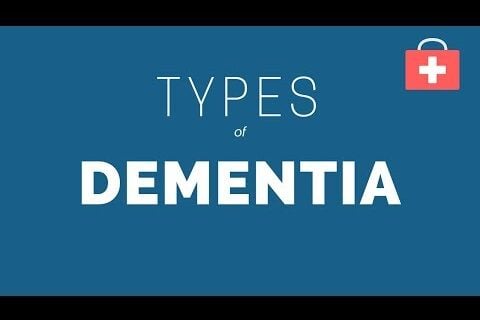
This “Overview for Med Students” sums up 5 common types of dementia: Alzheimer’s, Parkinson’s, Lewy body, vascular and frontotemporal dementia. Watch now.

Three important dementia studies focus on HS-AGING, a type of dementia almost as common as Alzheimer’s in the 85+ group. Yet few people have heard of it. Why? What makes it different?

An intriguing study of 120 grandmothers might surprise you. Doctors know socially engaged people have better cognition and less dementia. But can a person get too much of a good thing? What’s the right balance?

Enjoy this great duet between a musician with dementia and his son. A triumph of spirit over Alzheimer’s! Sing-a-long if you like!

It looks like a sneeze cannot give anyone Alzheimer’s. While Alzheimer’s abnormal disease proteins do spread from cell-to-cell, they are not “infectious”. Check out the facts.
No spam, only news and updates.